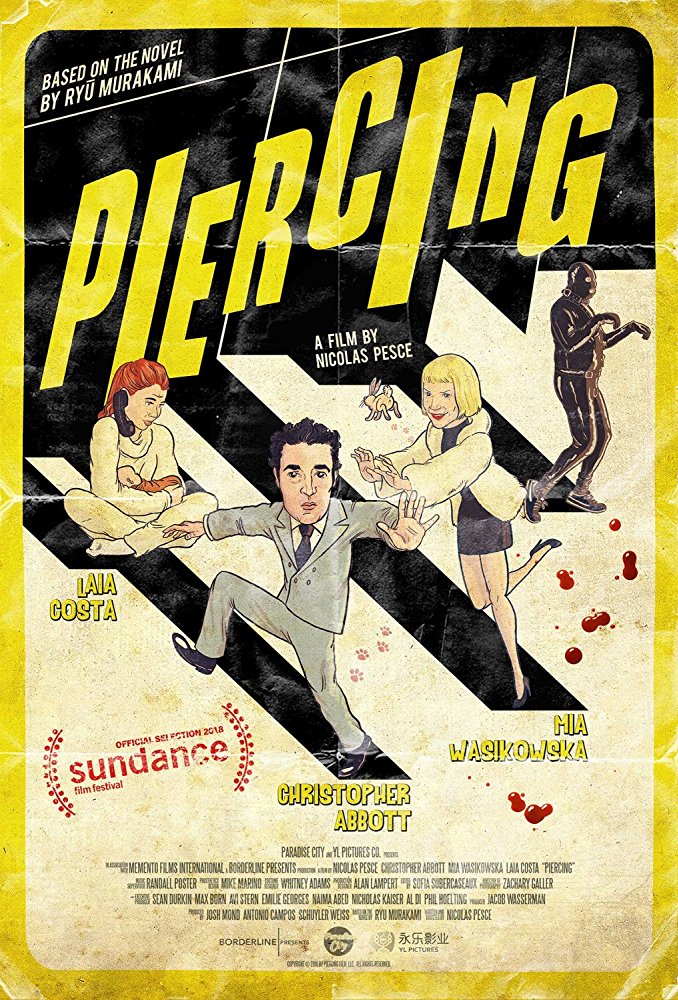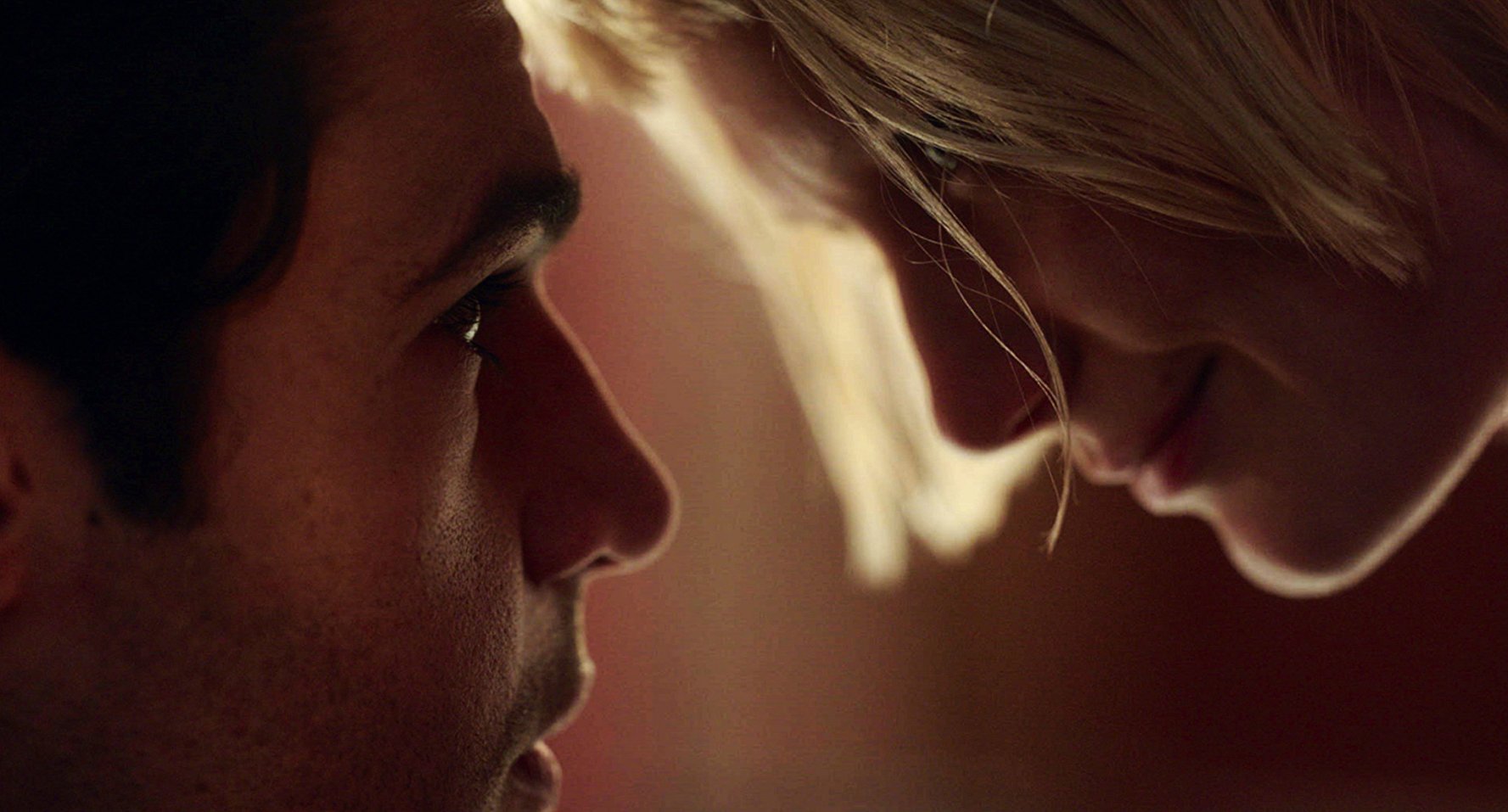
Annette Kellerman: Super excited to talk about your awesome film.
Nicloas Pesce: Thank you.
Kellerman: I guess it's an adaptation from a novel?
Pesce: Yup.
Kellerman: How did that come about?
Pesce: Yeah. I read the book while I was making my first film THE EYES OF MY MOTHER. And I saw so many elements that were within my wheelhouse, and exciting to me, but something that was very, very different than my first film. And really fell in love with the book, the investor from my first movie got me the rights to it, and we were off.
Kellerman: Nice. That worked out pretty well. That's really fun when a piece of literature you're a huge fan of can make it to the big screen.
Pesce: Yeah.
Kellerman: There's a timeless aesthetic, and again, not being familiar with the source material, I don't know if that's covered in the literature. It's a timeless aesthetic, but it has a little bit of a retro vibe, and then there's mid-century elements. Can you talk about all of that? If that was part of the book or if that's your influence directly?
Pesce: Yeah. The book takes place in Tokyo in the 90s. And the decision to make it out of time and place was because there are cultural elements to the book that don't translate to outside of Japan. But to me, the important thing was these characters, this story, and the fact that it's this weird, twisted fairytale. And so I wanted to take cultural expectations out of it. You have things like prostitution, that from country to country are so different. And I really wanted to make its own unique worlds where the time and the place doesn't matter. And it's this sort of artificial feeling place, and the time and where it is doesn't matter. It's just, it's like you're playing in a doll house and to sort of let the audience bring to the characters and the story whatever that is they want to bring to it, but not setting in New York City in 1996 and making it a specific thing. I think that the ambiguity was important for the audience experience of the movie.
Kellerman: Speaking of playing in a doll house, you used miniatures for the exteriors, and they're so cool. They're so incredible. Can you talk about that choice?
Pesce: Yeah. Miniatures is something that I've always been fascinated by in movies. And you look at things like ESCAPE FROM NEW YORK or BLADE RUNNER and these huge movies that use these miniature worlds. And part of the "out of place" and "out of time" was the characters themselves are very, in terms of how they show themselves to other people, are very constructed. It's very effective. They've conceived of a way in which they want people to perceive them that is fake. And trying to bring that into the design of the world where there's this intangible quality that it creates and an UNCANNY VALLEY sort of feeling feels real, but it doesn't. And then there's times where we let the miniatures feel more like miniatures, and times that we try to blend them in more. For instance, when they're outside the hospital and they're on a city street, those are miniatures behind them. And finding all the set, all the locations are sets that we built, and really playing with the slight artificial quality that someone like Roy Andersson plays with. And to unsettle you even just a little bit more.

Kellerman: It's very effective. And it's such a cool, cool choice. And the other super cool choice is the music of course!
Pesce: Yes.
Kellerman: And a lot of mostly Bruno Nicolai, and then a little Goblin thrown in there, but definitely of the Italian horror era.
Pesce: Yes.
Kellerman: Can you talk about all those musical choices and working with your music supervisor to include this amazing music?
Pesce: The movie, to me, was very much my take on a Giallo film. And something that became increasingly obvious in post was so much of the tone of these movies is the music. It's like there's a reason why Ennio Morricone started in porn, went to Giallo, went to westerns. And you see how important that, in that era and all of those movies, music is so important to the tone and the feel of them. And there's, for people who love Giallo movies, they know a lot of that music. But for people who don't, that music is incredible. And it's the weirdness of like it's disco-y, but it's orchestral, and it's sexy, but it's also fun, and dance-y. There's just a really unique quality to it. Randall Poster, who is a legend, was our music supervisor. He got in touch with ... In Italy, most of the movie music is owned by one company. And we made a deal with them, and they let us use a lot of shit.
Kellerman: Yes!
Pesce: And I think it really brings a lot to the movie and further grounds it in what I was inspired by. And I think that genre audiences are probably going to be the audiences who know the references, whereas you go to Sundance and people are like, "What is that music?".
Kellerman: Right. And you're like, "Let me tell ya".
Pesce: I'm a big fan of- you love the music, you go home, you look it up, and you're like, "What the hell is the red queen kill seven times? I want to go watch that movie." I think it also leads to a discovery. And I think that you look at guys like Tarantino, who straight up take huge, huge scores. Takes THE GOOD, THE BAD, AND THE UGLY, puts it in his movies. But going a little bit more obscure, and yes there are some Goblin tracks, but there's also stuff from Piero Piccioni from CAMILLE 2000, which is a glorified porno basically. And I think finding ... There's just this quality that can't quite be replicated anymore, whether it's the musicians or the recording practices, whatever it was, there's something really special about 20 years of film music in Italy, and I wanted to use it.

